12-11-15
The Last Gate: The Judgment by Stephan Komandarev
By Diane Sippl
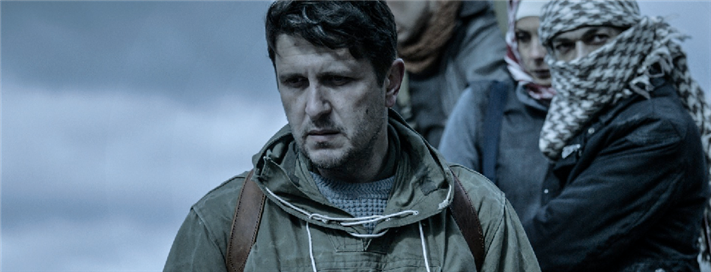
On a dark, glittering night, perched on a window ledge high above the town, young Vasko opens up to his new flame beside him:
“Jesus was walking in the desert with his disciples. They saw a funeral and asked, ‘What is God’s greatest blessing?’ Jesus said it was hard to say which was the greatest because spirit, health, faith, and hope are all very important…
“Blessings?” she asks.
“Yeah, but sorrow was above all. Because it can destroy everything, crush the most cheerful spirit, the most robust health, undermine the strongest faith, and smother the brightest hope. The only way a man can ease his sorrow is by crying. Without tears we are powerless to overcome sorrow. So tears are God’s greatest blessing.”
“And oblivion, too,” she adds, but the cut is to Mityo, Vasko’s father, in the barracks of an old, abandoned patrol station, reading the writing on the wall, hearing the words of the past, standing in the dark ironies of the present, pondering what he is about to do….
This scene arrives thirty minutes into Stephan Komandarev’s latest feature, The Judgement, the second of his works to be submitted as Bulgaria's Best Foreign Language Film Oscar entry. As it opens in an impoverished corner of the country, Mityo has lost his livelihood with the closure of the region’s dairy. He still has his milk truck, but he is also losing his home that he mortgaged to try to save his wife, and with that, the respect of his teenage son, Vasko, who blames him and could follow the path of most others, leaving the village for somewhere abroad. Meanwhile there are those of other countries south and east who risk everything to enter the same region of Bulgaria en route to a safe and secure future for their families. By necessity, Mityo’s life intersects with theirs as he reaches a new crossroads in direct conflict with the past.
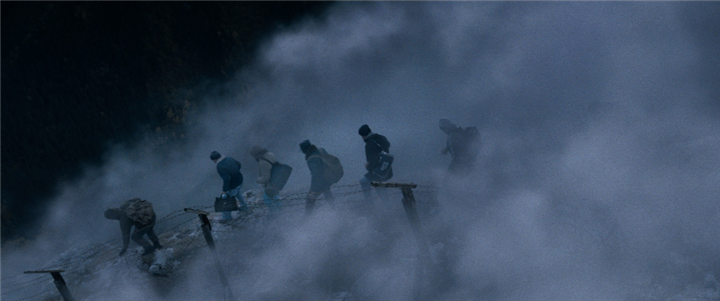
Early in the film, in Vasko’s classroom, the English teacher announces, “Today we’re revising the tenses: past continuous, past perfect, past continuous perfect…” Many would be hard-pressed to conjugate these, but the film does it dramatically and visually. Its action is not only the layered coming and going of today’s economic refugees — passing somehow across the southeast of Bulgaria’s Rhodope Mountains and the surveillance monitors of the present — but also the past maneuvers of the border patrol as those hostilities and atrocities continue to haunt the region today.
In the most cinematic way, The Judgment is about space and time: on the one hand, it is a very precise location, a precipice in southern Bulgaria, and a specific moment, today; but symbolically, it is any region where displaced peoples seek asylum and sustenance, and any time — ancient, communist-era, or since then — when individuals have been punished, slain, or conveniently “disposed of” at the mountain for which the film is named.
It’s difficult to imagine a more timely film that is also the grand epic that The Judgment is. An intimate father-son tragedy delivers a contemporary social drama as wide in scope as it is deep in history. Faces in large part unknown on the cinema screen bring us the dilemmas of the real people in their genuine location. From Komandarev’s earlier documentaries to this gripping tale, their diverse attitudes and collective memory are showcased with conviction of purpose: it is reconciliation with the past that allows true movement forward.
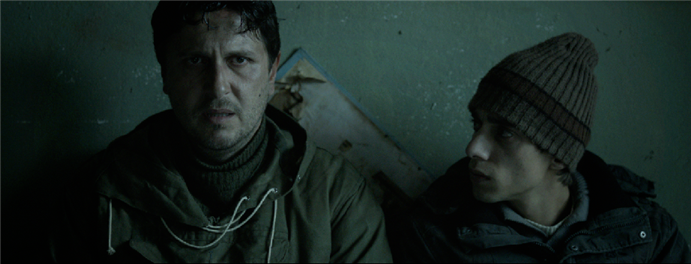
Komandarev’s carefully calibrated dialogue that plays as both colloquial and poetic, his uncanny portrayal of real characters in their actual habitat, and his longstanding relationship with the rugged but bountiful terrain place him as a strong contender in the Foreign Language Film category for the 88th Academy Awards®. In 2010 his feature film, The World Is Big and Salvation Lurks Around the Corner was the first Bulgarian film to be short-listed for the Best Foreign Language Film in the same competition and it is Bulgaria's most internationally distributed film ever, having been shown on screens in 93 countries. I met with Stephan Komandarev several times, in Beverly Hills, Westwood, and primarily in the Los Feliz area of Los Angeles, where he expounded on his writing, directing, and producing of The Judgment, Bulgaria’s submission for this year’s Oscars.
KINOCaviar Your sensibility is refreshingly compassionate in addressing a rather volatile topic in the world today. Have you always been a writer and a director and a producer?
Stephan Komandarev Before I was ever a filmmaker I was a doctor. I earned my degree in general medicine, but I ended up practicing child psychology. We held group therapy sessions, and one day someone donated an SVHS camera and a small editing table, so I started to use it. I was able to shoot the group dynamics of our psycho-therapy, and I became fascinated with what the camera could do. That’s how cinema caught me. The New Bulgarian University in Sophia had a Film Department, and I enrolled in it. Today I teach filmmaking there.
For The Judgment I had two co-writers for the script, but the basic idea for the film was mine, because I spent two years in this region of the Rhodope Mountains and made three documentaries there. One was about the empty schools there. They all closed, because the local people had left, and finally from eighteen villages, all the children took the bus to one school, called Alphabet of Hope, the title of my film. The next one was called Bread Over the Fence, and it was about a few close families in the area — one Muslim, one Orthodox, and one Catholic. For The Town of Badante Woman I showed a location with almost no women; they had left to become live-in caretakers of elderly people in Italy. It was a way to earn an income, and maybe send some money back home. The film includes talks with the fathers and some Skype conversations with the absent mothers.
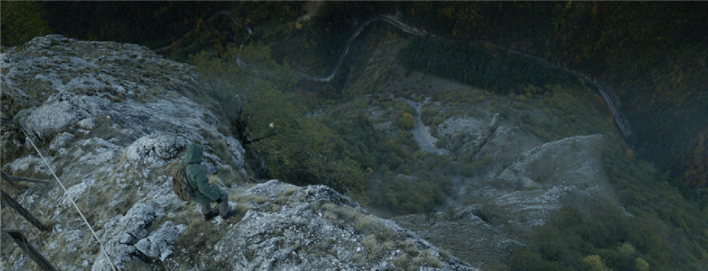
KC Were these films preparation for The Judgment?
SK Each documentary took a year to make, but then the shooting of The Judgment took only two months. We began October 20, 2012 and finished for Christmas. The budget was 1.6 million dollars. The writing took us many years, and we had time, because it was a European co-production with four countries — Bulgaria, Germany, Macedonia, and Croatia — so we needed years to apply for the funding and collect the money from each country. Beyond that, the script went through two separate workshops, both great for screenplay development — Script East in Poland and the Mediterranean Film Institute in Greece. Before that we had already written three drafts.
KC Your film looks and feels more like an epic than a road movie or a crime thriller.
SK It’s because everything in it is coming from classical Greek tragedy. Maybe it looks epic because of the mountain itself, actually a character in the film, and because we already know the title, which in Bulgarian implies an epic conflict.
KC Can you tell me about the physical and symbolic role of the mountain?
SK The setting of the film is very unique. The rock is a real location, and it’s Bulgaria at the top but below, 800 meters down, it’s Greece. It’s called Sadilishteto, which means, literally, “a place for judging.” Historically it was, really, a place for judging, for executions in early Christianity and in Communism. You can still find bones and ancient relics there. In the Communist era it was a useful spot because then no one had to transport the bodies somewhere else, and instead of all the technical reports of the victims, the executioners could claim that accidents had occurred — someone ran off, or slipped, or jumped.
KC Are these stories — either as official reports or as circulated rumors — accurate in your film?
SK I must say that all the characters in my film are actual people and I use their real names, and all stories in my film are real and existing. It’s not possible to know them before you go there because you sit down and drink and talk with the locals, and then you discover these hidden truths. (You know, very nearby, just outside the frame of my film, is the best wine-making region in Bulgaria.) The people of this region are very warm and open.
There was a documentary film in which the East German Stazi said that 2,000 people were officially killed at the border between Bulgaria, Greece, and Turkey. It used to be the external border of the Communist bloc and now it’s the external border of the EU. The path now is from Syria to Turkey to Bulgaria.
Contrary to what people imagine, the Turkish-Bulgarian border has lots of police because it’s the EU border. But between Turkey and Greece is the Maritza River, so there is not so much security there because the patrol thinks the river is too difficult to cross. At the big dam where we shot the film, Ivailovgrad, a region of poverty in Bulgaria, there are lots of border police. The “Mexico” signs were already there — everything’s real in my films.
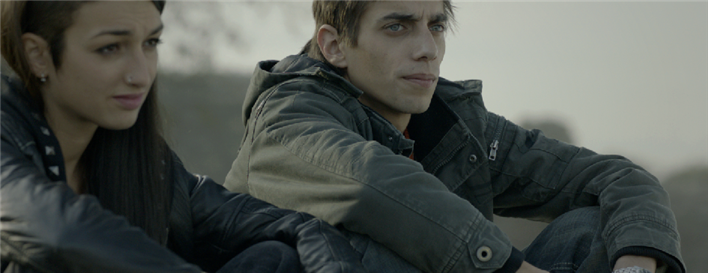
KC Exactly who are the people Mityo transports?
SK The refugees there now are from Syria, and many articles in the Bulgarian press have said that we predicted the current crisis, but we have economic immigrants from Syria, Africa, Afghanistan, and the Middle East in the film because they were actually there when we wrote and shot the film. There were very few legal émigrés because they were using Bulgaria as a path to Austria and Germany. Of course they’re played by actors; only a few small roles of locals were cast with lay actors to keep the identity and authenticity of the subject. And the girl at the very end of the film is called a “gypsy” only by the Captain, as a derogatory reference; her character is not Roma, but Syrian.
A month ago an Afghani was killed at the border by the Border Patrol. My wife is a psychotherapist, and she said she could see both the migrants and the smugglers as victims. Mityo is forced to do what he does.
KC Tell me about writing the dialogue. How did you choose to include the rich literary allusions?
SK About 90% of Bulgarians are of the Orthodox religion. The line from the Bible, “This too shall pass,” is spoken by the doctor of the village to Mityo, the father. The passage about Christ in the desert was the idea of the young actor, Ovanes Torosian, who plays the son, Vasko. He’s very intellectual, thinking all the time. He’s really something!
Before every film I have at least a month to a month-and-a-half of rehearsals with the actors, and then we develop this dialogue, even after 9 drafts of the script. We always change the dialogue with the actors, to get it more natural; only then can we hear it in the mouths of the actors. This process also leads to some improvisation, because we have total freedom then. Once we begin shooting, there is the money pressure.
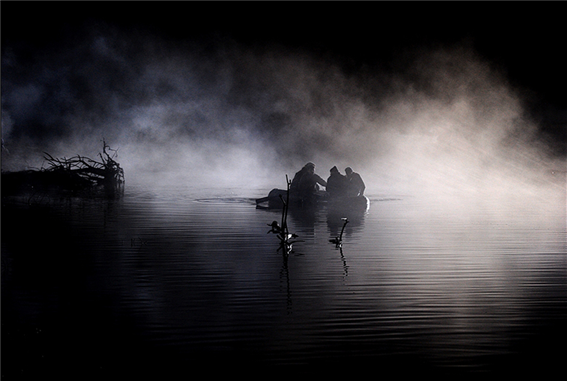
KC Near the end of The Judgement is a scene in which the father and son speak to each other on the ridge of the mountain but we don’t hear their voices. In fact it’s shot MOS. What did you intend there?
SK My editor and I invented these moments on the editing table. We wanted to give space to the imagination of the audience, and in our post-screening Q&A exchanges, lots of spectators said they loved this.
KC Why does the son obey his father’s order to leave him?
SK Much as he cares for his father, because in the Orthodox religion, what the father says goes, especially in small towns.
KC You attached a coda to the story. Why?
SK For me, the son writing the letter at the end of the film leads to optimism. It’s a dark film, but with this ending, we see the link between two generations: the father is my generation, with half a life under Communism and half a life under the changes since then; the son in the film is my son’s generation, those born in freedom but who must take responsibility for the past and pay for some of the sins of their fathers, to ask forgiveness.
The counter-propaganda in Bulgaria — not to talk about the past, but to “move on” — ensures that analysis never happens, and that’s why we’re the poorest country in the European Union., The reason to make the film is to show how the past exists in the present.
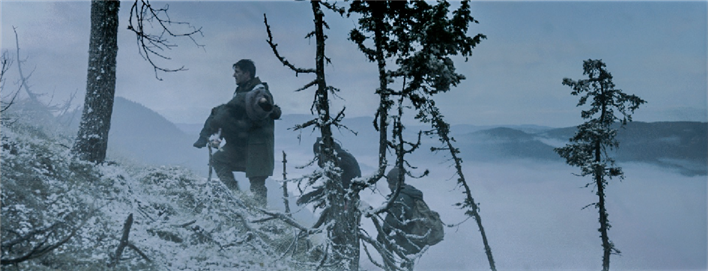
KC Your main actor, who plays the father, really surprised me, the way that he grew on me and ultimately revealed himself.
SK Assen Blatechki, who plays Mityo, the father, refused to let us use a stuntman for him. For example, at the mountain’s edge and in the river, he insisted on doing all the acting himself. The DP of the film is a mountain climber who shot one of my documentaries before this film. He and the camera and all the actors were on security ropes to shoot the film, but they were really right at the edge of the mountain. We cleaned the ropes out of the picture in the computer editing.
Assen needed this kind of film for his career because he had been acting mostly in TV roles and playing macho gangsters. People never expected that he could do something so deep and so human. It took him six-and-a-half minutes to do the scene when he’s crying with his son and telling Vasko about his mother. He got it in the first take.
KC Was it difficult to cast the Captain?
SK Miki Manojlovic, who played the Captain, was in my last feature film, five years ago, The World Is Big and Salvation Lurks Around the Corner, which was based on a beloved book by a Bulgarian novelist, a best-seller. Miki’s famous and successful, and it’s very easy to work with this type of actor. He doesn’t need long rehearsals and discussions. We’re close. When I knew I had this role for him, I went to visit him in Serbia and took some bottles of good Bulgarian wine, and halfway into the second bottle, he’d already said, “Yes.” He was speaking Bulgarian with an accent, and later he was dubbed by the guy who did our subtitles. No one can tell.
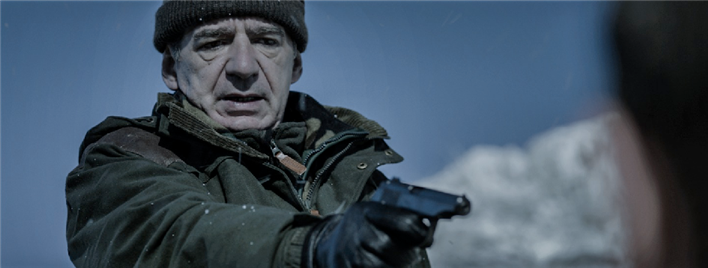
KC The Captain’s house in the film is incredible. Did you build it as a set?
SK No — it was actually real; it’s the home of the real gangster in this town. And we paid nothing to use it. He let us have it for one day and said, ‘Just do whatever you want’. We told him it would be the house of a negative hero, and he liked it!
KC Has the real-life Captain seen the film?
SK He died two months before we shot the film, drinking a liter of vodka per day. At the beginning of every conversation, he always said there was no killing on the border. After a few shots, he’d open up about the killings, his wife, his daughter, filling up the country with émigrés…
KC What’s the scale of the Bulgarian film industry?
Let’s say at the moment, things are a bit more optimistic. We can speak of fifteen narrative feature films this year, low-budget but also successful at festivals and in Bulgarian theaters. Five years ago, it was six or seven features.
Now I’m preparing a new narrative feature — a low-budget film, an all-Bulgarian production in terms of money — of six taxi cab stories in one night in Sofia. We can shoot it in twenty days. We don’t need to pay for hotels, and we can do it in this short of a time, so it’s cheaper to make.
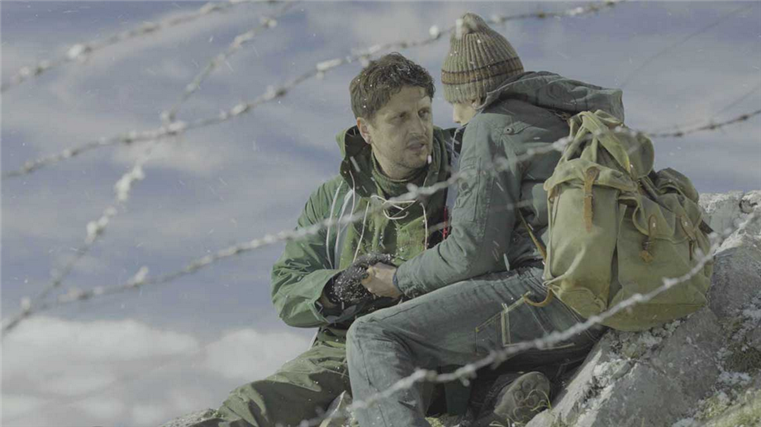
KC Who inspires you as a writer?
SK There are only two: Chekhov and Dostoevsky. My next film is based on three stories by Chekhov — one about a sleigh driver whose son has died, one about a man driving his wife to the hospital, and one about a man saving another from suicide somewhere in the taiga — and three new stories.
The Bulgarian National Film Center, the institution that finances Bulgarian films after voting on all submitted projects, established a special section two years ago for low-budget films, and we already got the biggest part of our budget from them for the new film, so we’ll shoot in March, maybe, or October. There are so many trees in Sofia that we need the season when they are bare to be able to see the buildings!
KC Well I'll be looking forward to your new film, and good luck with The Judgment.
SK Thank you.
The Judgment
Director: Stephan Komandarev; Producers: Vladimir Anastasov, Stefan Komandarev, Aleksander Ris, Katya Trichkova, Angela Nestorovska, Christine Haupt, Boris T. Matic; Screenwriters: Marin Damyanov, Emil Spahiyski, Stefan Komandarev; Cinematographer: Krasimir Andonov: Editor: Nina Altaparmakova; Music: Stefan Valdobrev.
Cast: Assen Blatechki, Miki Manojlovic, Ovanes Torosian, Ina Nikolova, Paraskeva Djukelova, Meto Jovanovski
Color, Wide Screen, 102 min. In Bulgarian with English subtitles.